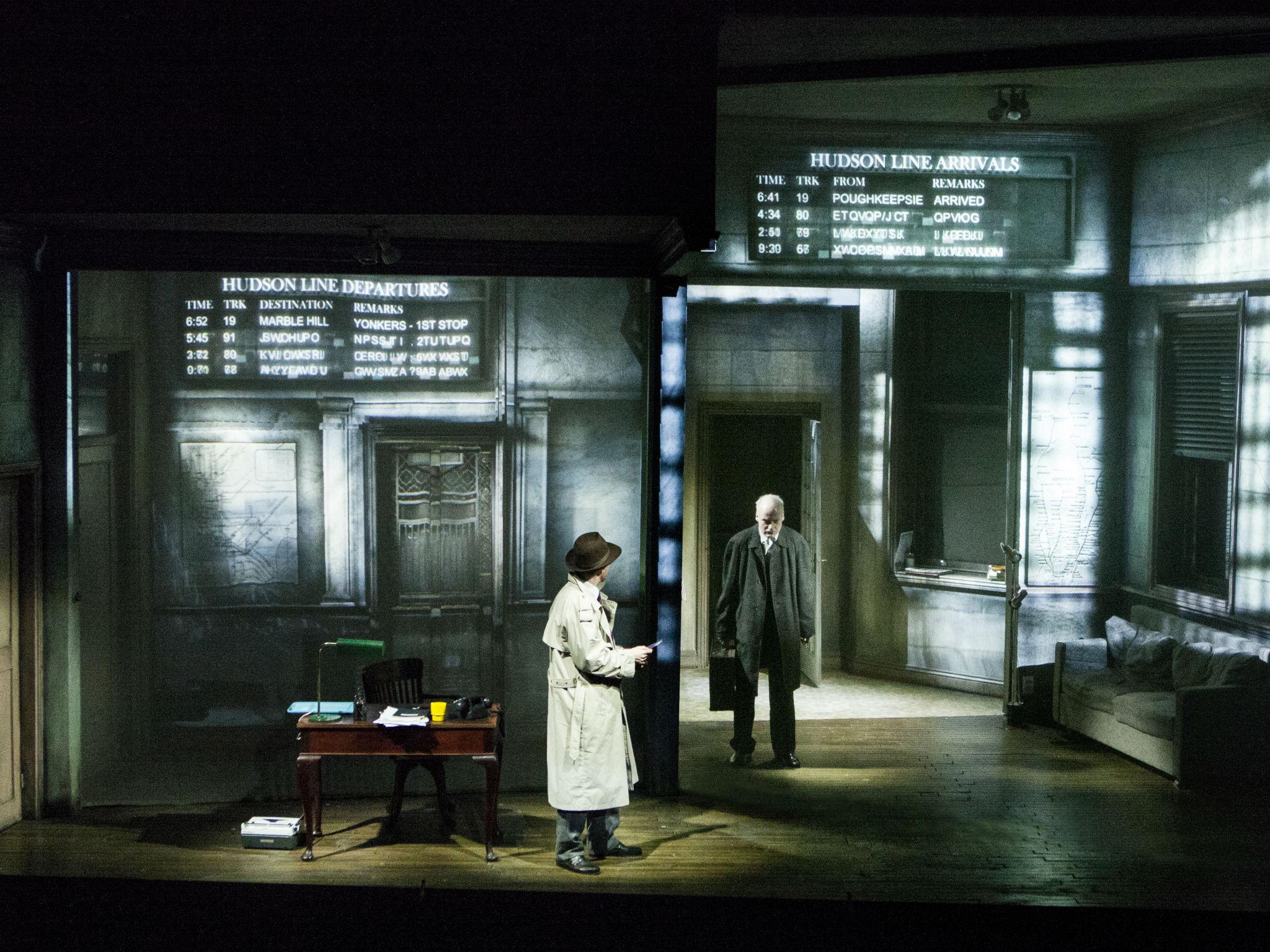City of Glass, Lyric, Hammersmith, London, review: You can hardly believe that such a small band have created this extraordinary world at the curtain call
Duncan Macmillan's stage adaptation of Paul Auster's 'City of Glass' from his 'New York Trilogy' immerses audiences in a visually dizzying and disconcerting stage production

Your support helps us to tell the story
From reproductive rights to climate change to Big Tech, The Independent is on the ground when the story is developing. Whether it's investigating the financials of Elon Musk's pro-Trump PAC or producing our latest documentary, 'The A Word', which shines a light on the American women fighting for reproductive rights, we know how important it is to parse out the facts from the messaging.
At such a critical moment in US history, we need reporters on the ground. Your donation allows us to keep sending journalists to speak to both sides of the story.
The Independent is trusted by Americans across the entire political spectrum. And unlike many other quality news outlets, we choose not to lock Americans out of our reporting and analysis with paywalls. We believe quality journalism should be available to everyone, paid for by those who can afford it.
Your support makes all the difference.“It was a wrong number that started it”: so begins City of Glass, the first novel in Paul Auster's New York Trilogy. It's the line that propels this visually dizzying and disconcerting stage adaptation – written by Duncan Macmillan (People, Places and Things) and directed by Leo Warner as a co-production for 59 Productions, Home and the Lyric, Hammersmith – on to a course that takes the story into the arch madness of meta-detective fiction through to full authorial mental breakdown in which personal identity disintegrates and the relation between the objective world and the world-as-written goes bewilderingly askew.
We being in the New York apartment of an author called Daniel Quinn, a once highbrow scribe who, in a seeming effort to deflect the grief caused by the death of his wife and little boy five years ago, now gets by writing detective fiction under the name of William Wilson. The portentous narrative voice keeps being interrupted by mysterious phone calls from a man called Peter Stillman who believes (or claims to believe) that he has reached the Paul Auster Detective Agency.
In a decision that pulls him into a fearful faux noir-like situation replete with a femme fatale, Quinn can't resist assuming this mistaken identity and taking on a case that involves the protection of Stilmann from his insane father who is just about to be released from prison for keeping young Peter alone in the dark for nine years when he was a child.
Thanks to Lysander Ashton's extraordinary video designs that allow Quinn's flat to morph in mid-sentence into the panelled mock-baronial of the Stillman residence and Grand Central station and a map of Manhattan that keeps fiery tabs on the weird peregrinations round the city of Stillman, the show proceeds as an unnervingly bravura network of doublings and correspondences. But I found that the more it seemed to be playing primarily literary games, the less I was compelled. The later scenes – in which Quinn is confounded by meeting the “real” Paul Auster, who refuses to accept the cheque signed to him Virginia Stillman for detective work, and in which Quinn, unravelling on every level, dosses down in the dark in all the defunct haunts – are impressive but irritated me with their suggestion that insolubility equals profundity.
Leo Warner's cast of six are so expert that individual namechecks seem to be out of place: you can hardly believe that such a small band have created this extraordinary world at the curtain call. If, as I do, you reckon that there is less to this than meets the eye, you can't dispute that what the eye encounters here is a wonder.
Join our commenting forum
Join thought-provoking conversations, follow other Independent readers and see their replies
Comments